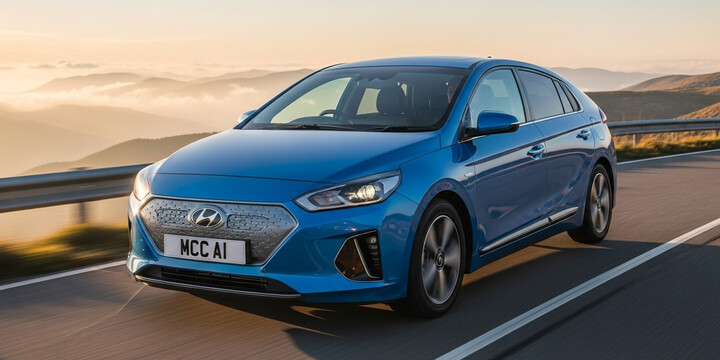HYUNDAI IONIQ ELECTRIC (2019-22)

Buyer's Guide & Data from our Checks
The Hyundai Ioniq Electric (2019-22) is a compact hatchback widely regarded for its efficiency and eco-friendly design. Positioned as a practical choice for city dwellers and commuters, it offers an alternative to traditional petrol cars with zero emissions, making it appealing to environmentally conscious drivers. Its sleek design combines modern looks with a comfortable interior, and because it’s electric, it benefits from low running costs and minimal maintenance. This model is best suited for daily urban journeys or short-distance travel, often favored by first-time electric vehicle buyers and small families seeking a reliable and affordable option.
Data from mycarcheck.com shows a strong interest in the Hyundai Ioniq Electric, with over 3,173 look ups and 1,677 distinct VINs, indicating a healthy market presence. The average private sale value is around £18,600, with typical mileage of 31,000 miles, highlighting its affordability and moderate use. The vehicle usually has just over half a previous owner, pointing to its popularity among individual buyers.
What makes the Hyundai Ioniq Electric (2019-22) stand out is its impressive mix of efficiency, design, and reliability. It is often praised for its smooth driving experience and practicality compared to rivals like the Nissan Leaf or Kia Soul EV. In the competitive electric car market, the Ioniq Electric holds a reputation for offering a dependable, environmentally friendly option that suits urban daily use while maintaining affordability and sensible features.
Key Findings
The following statistics are drawn from our checks of 1,677 different vehicles, run between February 17th 2021 and December 31st 2025. These real-world insights provide context for this vehicle's place in the market, as well as its typical usage.
3,173
Lookups
Lookups
59
Hidden Histories
Hidden Histories
42k
Average Mileage
Average Mileage
£18,600
Average Valuation
Average Valuation












